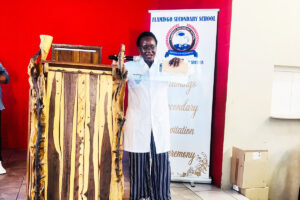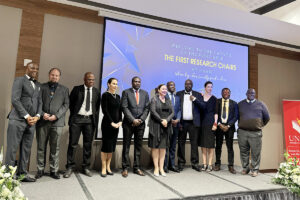On the 25th of April 2023, the official inauguration of the Bio-Safety Level 3 (BSL3) laboratory took place at the University of Namibia’s School of Medicine. The inauguration was officiated by His Excellency Mr. Herbert Beck, German Ambassador to Namibia.
Tuberculosis (TB) continues to bring a catastrophic cost to many people and infects 10 million and kills 1.6 million people each year worldwide. According to the World Health Organisation, Namibia is one of the 30 high burden countries for TB with approximately 12 000 people acquiring TB annually, of which 1500 die from the disease. On the other hand, COVID-19 has claimed approximately 4000 lives in the country. A crucial pillar for improving health care in the medium and long term and reducing the burden of infectious diseases is the existence of suitable research and diagnostic capacities in Namibia.
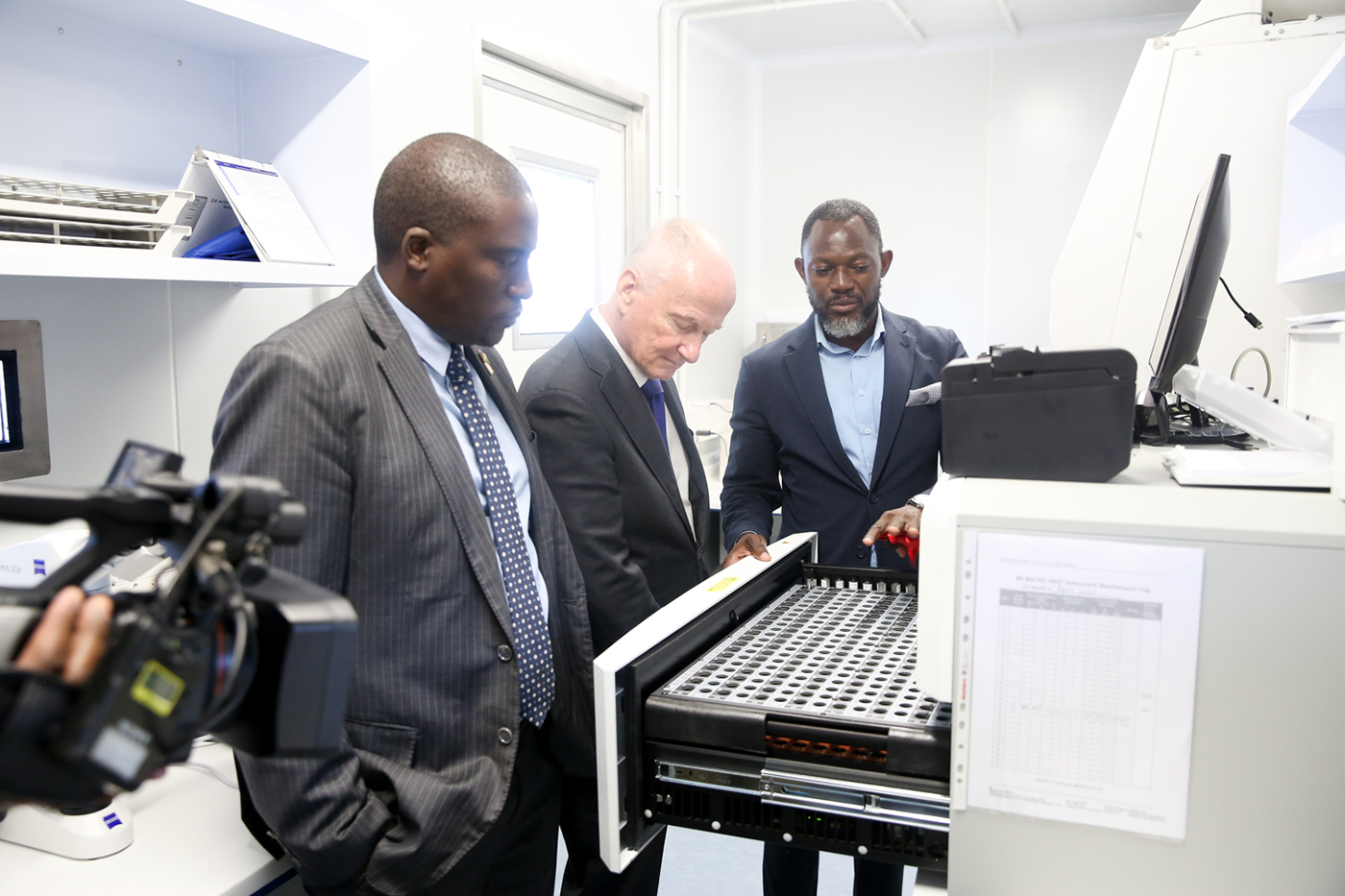
In efforts to strengthen the resilience of the Namibian health system, the German Ministry for Economic Cooperation and Development (BMZ) provided funding for this joint project. Through the German Development Bank KfW, Germany funded the infrastructure for a Biosafety Level-3 (BSL-3) Laboratory with 6 Mio NAD. In addition, through the Federal States Programme (German: Bund-Länder-Programme; BLP) and implemented by GIZ, laboratory equipment, and materials have been procured for the amount of 3.5 Mio NAD. Additional human capacity development is also supported. The Namibian side through UNAM contributed 1 Million NAD.
The new biocontainment BSL-3 Laboratory is designed to conduct research and sustained diagnostic testing in the areas of COVID-19, tuberculosis, HIV, and other infectious pathogens such as rabies, and avian influenza among others. Such a facility could also support One Health surveillance activities and field interventions in Namibia. The facility will increase responsiveness and capacities in the country’s health sector as a whole, with close cooperation with the Ministry of Health and Social Services, the Namibia Institute of Pathology, and other stakeholders.
Dr Emmanuel Nepolo, Head of UNAM Molecular Diagnostic Laboratory, emphasizes that: “the new BSL-3 facility is a sign that Namibia is on the right trajectory in establishing local laboratory infrastructure and capacities in the country that will make it less dependent on other countries in terms of pandemic prevention, preparedness, and response.”
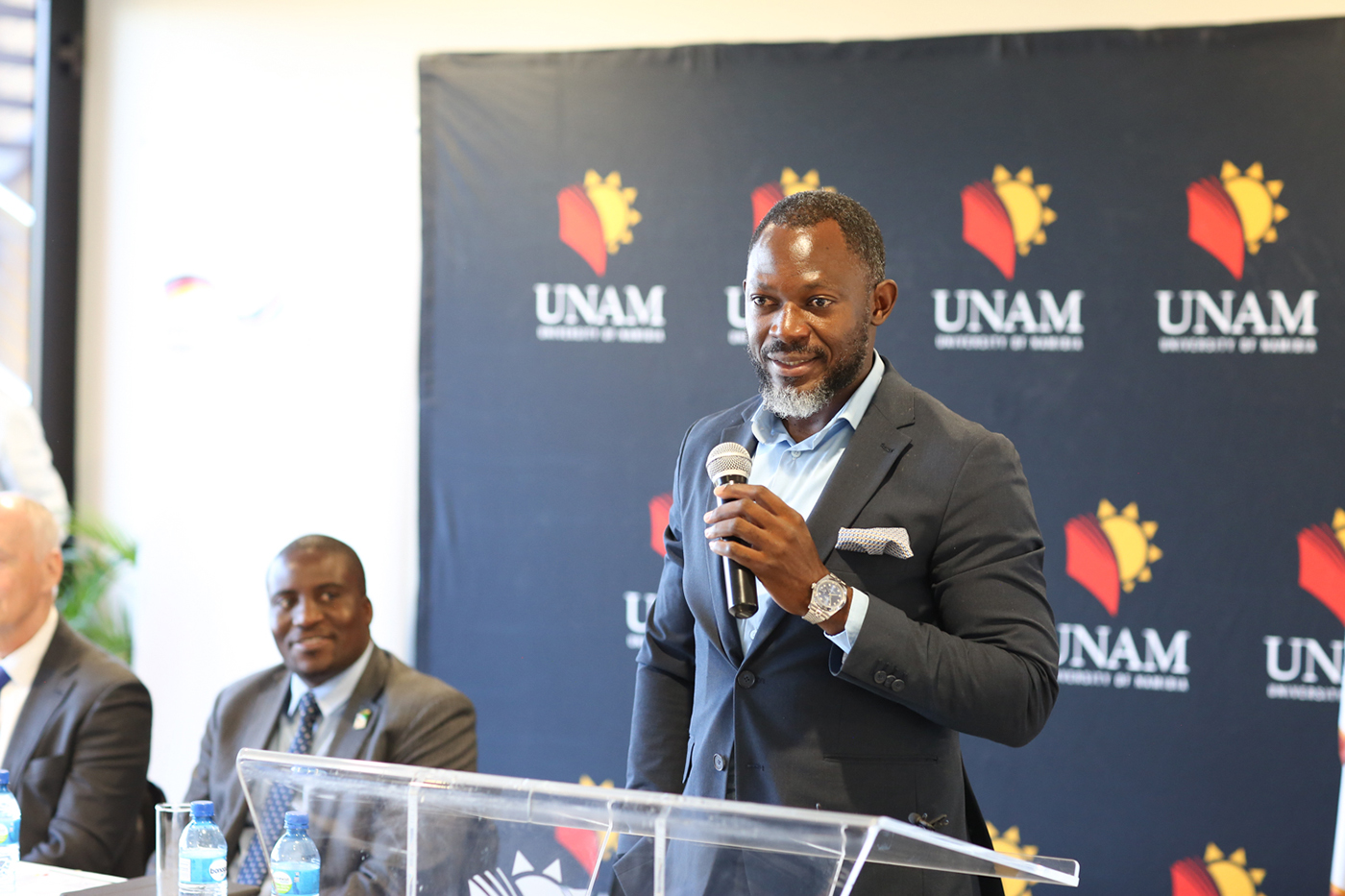
The laboratory, designed in compliance with international standards and manufactured in the Republic of South Africa, comprises a containerized structure, including medical equipment and a dedicated plant room for a filter-controlled airflow. This state-of-the-art laboratory incorporates a series of facilities such as, Reagent Preparation, Specimen Receiving, Ante, Culture, and Detection Rooms.
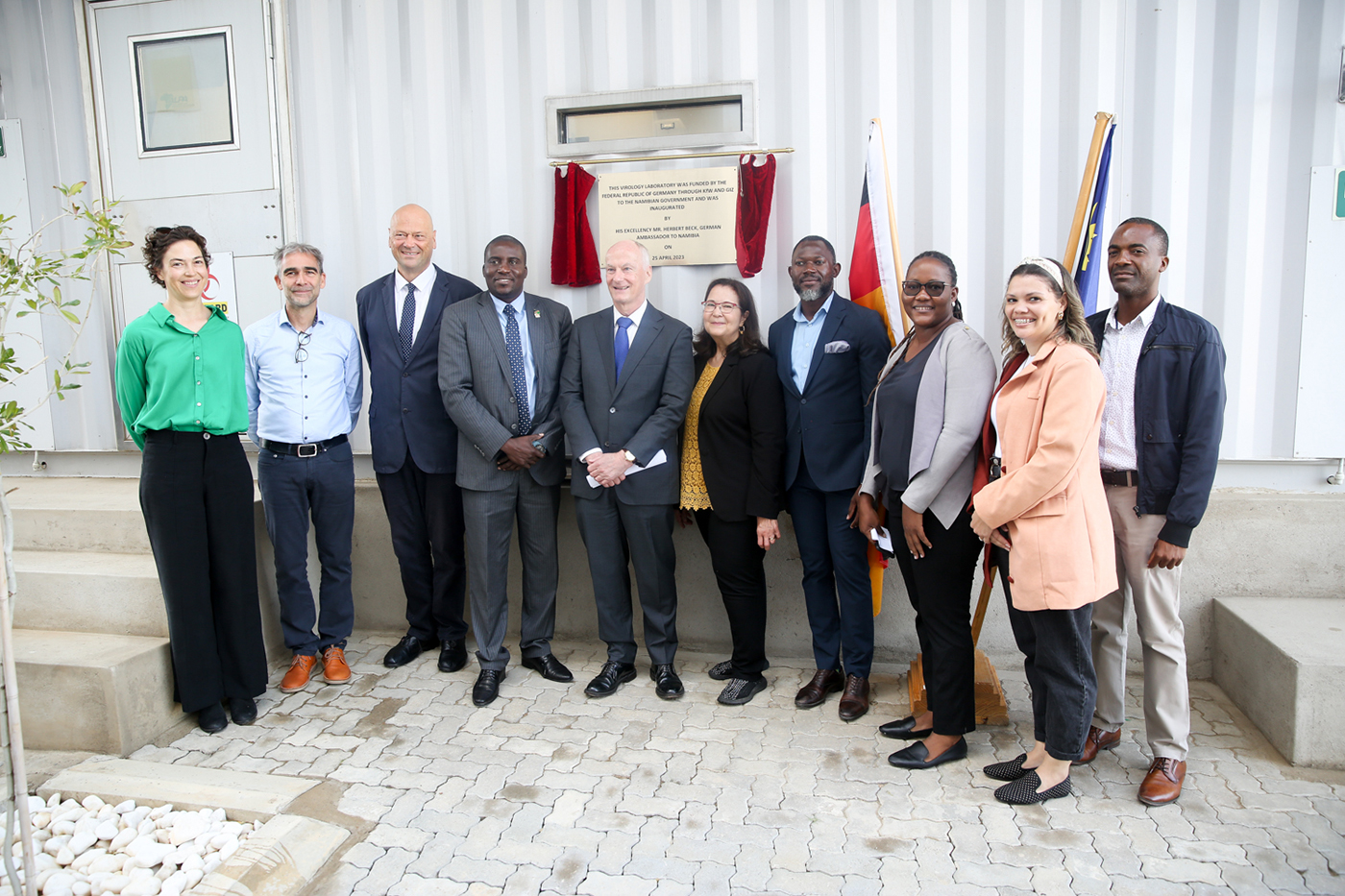
The funding from the German government will enable UNAM to deepen its longstanding academic ambitions, such as enhancing its research agenda and training with internationally renowned universities. Thus, the project aims at capacitating the School of Medicine with the necessary equipment to increase research outputs and diagnosis of public health relevance.
Original story by: Suama Shingenge




